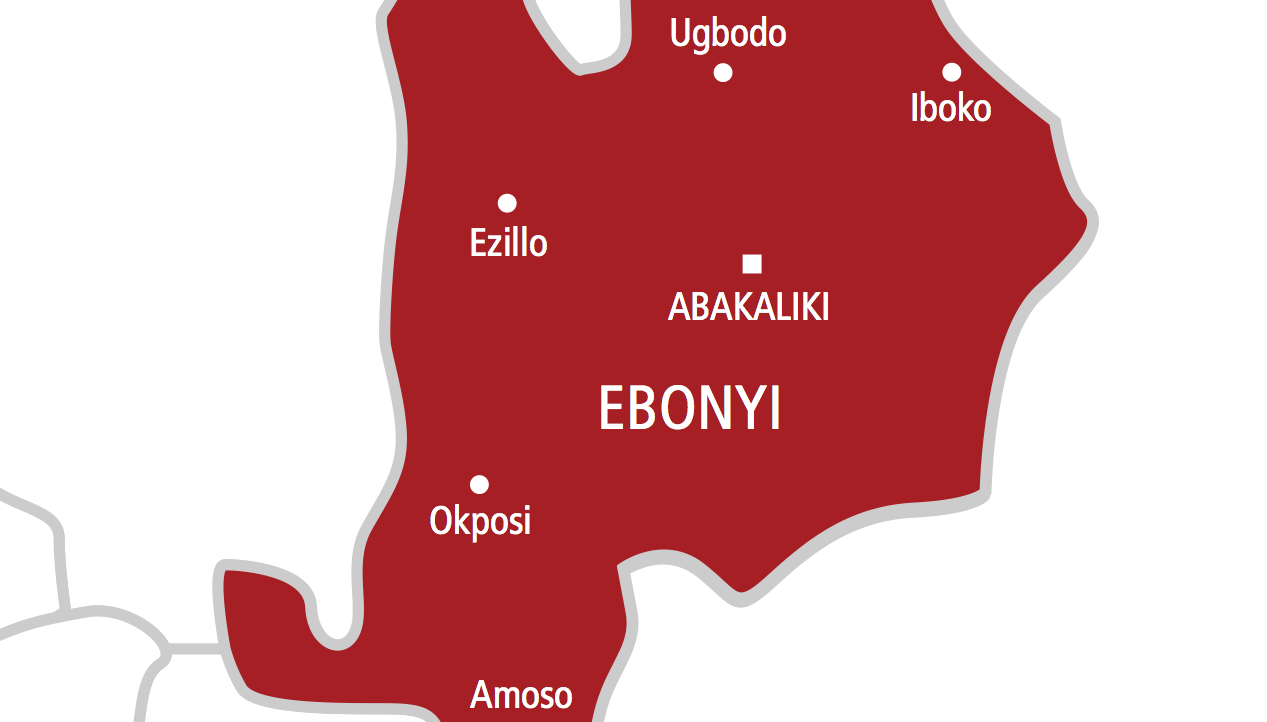One of the starkest failings of subnational (state) governments in Nigeria is provincialism or insularity – lack of creative cooperation among states for regional stability and national development. Many governors practically want to be emperors, with absolute powers and a toothless civil society, at best.
In the recent past, there have been deliberate efforts to shrink the civic space in Nigeria as evidenced by controversial clauses in the amended Corporate Affairs Commission (CAC) Act; social media regulation bills; clampdown of EndSARS protesters; use of thugs or security personnel to attack peaceful protesters; imposition of fine on media organisations over opinions expressed by guests; arrest and detention of social critics; among others. While we share misgivings about the ailing state of democracy at the centre, we also have deep concerns that the situation in Ebonyi could be more frightening.
- We can’t return to era of godfathers, Kwara lawmakers tackle Lai
- El-Rufai: I’m too old to be Nigeria’s president
For context, among the Igbos, civil liberty is rooted and enabled by such clauses as “egbe bere, ugo bere” (equity), “emee nwanyi ka emere ibe ya …(justice), etc. In fact, the Igbo clause for democracy is ‘ochichi onye kwuo uche ya’ (a government that allows free expression) or ‘ochichi oha kara si’ (a government that does what the people say or want). These Igbo clauses suggest that free expression cannot be successfully divorced from the political behaviours of the Igbos. Similarly, the word despotism is not new; it has lived with Igbos. From time immemorial, despotism has been synonymous with Eze-onye-agwanam – a style of leadership (syndrome) highly incompatible with republican and self-governing nationalities, like the Igbos.
Looking at how Governor Umahi is handling security in the state, we are deeply concerned. This is not the time to piss on Ebonyians with propaganda. It is time to speak truth to power. The visible obsession with policies aimed at achieving regime protection and expanding political estates is not for our common good.
In Ebonyi, there should be jubilation over the emergence of Ebubeagu to confront widespread insecurity in the state but this is not the case. Instead, there is a fuzzy atmosphere over the activities of Ebubeagu, especially how the enabling law was hurriedly and “secretly” passed without public hearings or inputs from citizens.
Courageously, the former governor of the state, Dr Sam Egwu strongly suggested the possible monopolisation, politicisation and personalisation of Ebubeagu for partisan ends. He believes that no one knows the modus operandi of Ebubeagu except the government. This shouldn’t be! Ebubeagu should not be styled after the Gestapo – the secret and political police of Nazi Germany that ruthlessly eliminated “unwanted” political voices.
While grappling with these concerns, the Chairman of the South-East Security Committee (Ebubeagu), General Obi Umahi (Rtd), announced his resignation. General Umahi suggested his committee never received the requisite funding for its planned synchronised take off across the region as agreed with the governors. It is plausible that General Obi’s resignation was “forced”. If so, it is a sour anecdote of poisoned politics in the region.
To shield Ebubeagu from undue political manipulations and for it to achieve its operational objectives, we strongly believe that pioneering the outfit under strong technocratic leadership backed by strong character, patriotism and civil policing experience is desirable. Else, finite errors could catalyse spontaneous germination of unwanted armed groups (perhaps, militias) in the South-East. In this light, the public needs robust explanations from the governors on the reasons stated by General Umahi for his resignation. Everything shouldn’t be “politics”, least of all security.
Similarly, on the live broadcast of 29th May 2021, the governor announced a ban on “all forms of procession or gathering till further notice”. It seems the government is overstretching its mandate by expropriating citizens rights to peaceful assembly and self-expression. We believe that a governor does not have the constitutionality to restrict or ban a constitutional right of citizens via a mere pronouncement. For us, Governor Umahi’s commandment is an attack on the civic space and a despotic exhibition. For the receipts, this recent ban is not an isolated case. In October 2020, he “proscribed” the Academic Staff Union of Universities (ASUU); the Non-Academic Staff Union (NASU) and other associations at the Ebonyi State University, Abakaliki.
While we commend the governor for putting up several physical infrastructures and amenities, like good road networks and street lights to enhance intra-state movement, we consider the attempts at closing up the civic space through bans and proscriptions as simply despotic and undesirable.
In a globalised world, it is only despotic leaders that boldly display their abhorrence for human rights, public criticisms and vibrant opposition. For instance, China is piloting its “social credit scheme”. In this scheme, each Chinese will be monitored and given a social credit score. Monitoring of citizens is done on all online activities and the Chinese Government is erecting 200 million face recognition cameras throughout the country. As the propaganda has it, a high score will allow “trustworthy” Chinese to roam freely while making it hard for the “untrustworthy” to take a single step in China. Of course, China is run by a communist party, defined by despotism. Unlike China, Ebonyi State is a democratic subnational entity – at least political leaders come to power through periodic elections. But whether these elections are free, fair and credible is a topic for another day.
To ensure development that leaves no one behind, despotic tendencies in Ebonyi need to give way to civility and rule of law. And to deepen this civility, Ebonyians need a critical mass of active citizens. This critical mass will re-engineer civil society in the state to acquire the capacity to engage the governor on human rights preservation, transparency and accountability in public finance and a professional Ebubeagu.
But there is a problem. Liberty or freedom in poor democracies takes time to achieve and needs enabling laws. From the benefits of hindsight, these laws cannot be willingly given by the state or ruling elites who operate at their whims and caprices and detest political accountability. It needs an enlightened civil populace who are willing to stay engaged, involved and watchful in defence of democratic standards.
The civil society in Ebonyi needs to develop teeth and encourage or pressurize the state government to remain accountable at all times. We are firm that development, political freedom and liberty need a mobilised society that participates in politics, demonstrates/processes peacefully when aggrieved and votes out unpopular leaders during elections. The status quo in Ebonyi is a discrepancy and it needs improvements.
In the spirit of participatory democracy, we are urging the Ebonyi State Government to reverse its proscriptions on all forms of gathering and peaceful demonstrations in the state. We also urge him to halt his plan to regulate social media as there are sufficient laws to manage abuse of social media. Any other policy that threatens the civic space should also be reversed. This is imperative because there is no faster way in which democracies die and despotism enthroned except by shutting down the civic space – silencing citizens’ voices using draconian pronouncements. Ebonyi should aspire to be a model for progress in Nigeria through democratic ethos. Despotism should have no place in our polity.
Authors:
Ani, Nwachukwu Agwu
_Ani is a doctoral candidate at the Institute for Development Studies, University of Nigeria. Also, he is the Director of Research and Strategy, Oganihu Ebonyi. He can be reached via [email protected]_
Dr Laz Ude Eze
_Eze is a medical doctor, public health specialist and sustainable development consultant. Also, he is the Convener, Oganihu Ebonyi. He can be reached via [email protected] and tweets as @donlaz4u._

 Join Daily Trust WhatsApp Community For Quick Access To News and Happenings Around You.
Join Daily Trust WhatsApp Community For Quick Access To News and Happenings Around You.

